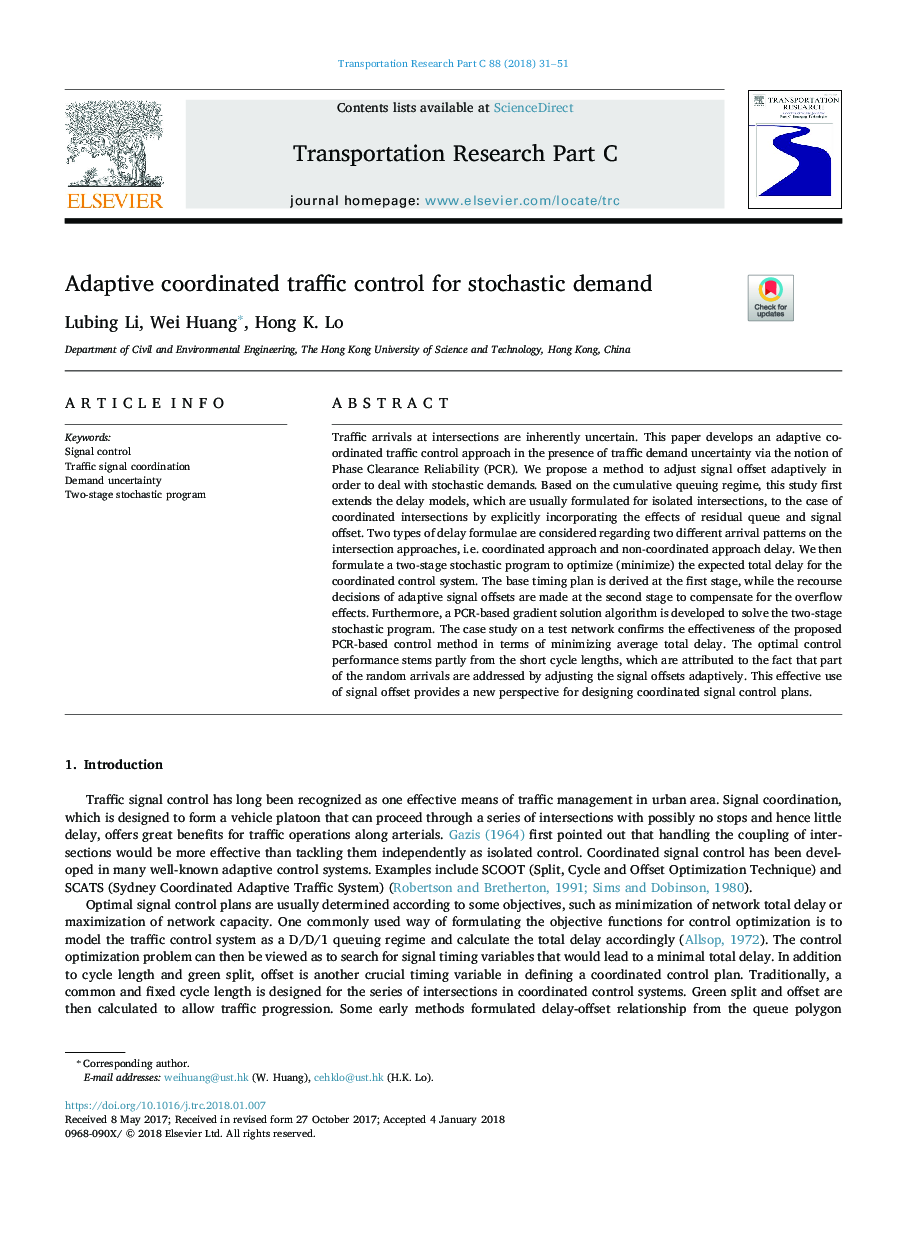| Article ID | Journal | Published Year | Pages | File Type |
|---|---|---|---|---|
| 6936129 | Transportation Research Part C: Emerging Technologies | 2018 | 21 Pages |
Abstract
Traffic arrivals at intersections are inherently uncertain. This paper develops an adaptive coordinated traffic control approach in the presence of traffic demand uncertainty via the notion of Phase Clearance Reliability (PCR). We propose a method to adjust signal offset adaptively in order to deal with stochastic demands. Based on the cumulative queuing regime, this study first extends the delay models, which are usually formulated for isolated intersections, to the case of coordinated intersections by explicitly incorporating the effects of residual queue and signal offset. Two types of delay formulae are considered regarding two different arrival patterns on the intersection approaches, i.e. coordinated approach and non-coordinated approach delay. We then formulate a two-stage stochastic program to optimize (minimize) the expected total delay for the coordinated control system. The base timing plan is derived at the first stage, while the recourse decisions of adaptive signal offsets are made at the second stage to compensate for the overflow effects. Furthermore, a PCR-based gradient solution algorithm is developed to solve the two-stage stochastic program. The case study on a test network confirms the effectiveness of the proposed PCR-based control method in terms of minimizing average total delay. The optimal control performance stems partly from the short cycle lengths, which are attributed to the fact that part of the random arrivals are addressed by adjusting the signal offsets adaptively. This effective use of signal offset provides a new perspective for designing coordinated signal control plans.
Related Topics
Physical Sciences and Engineering
Computer Science
Computer Science Applications
Authors
Lubing Li, Wei Huang, Hong K. Lo,
